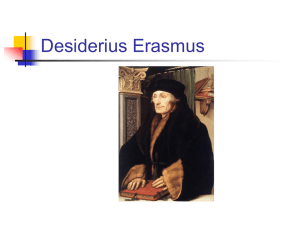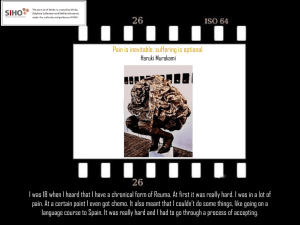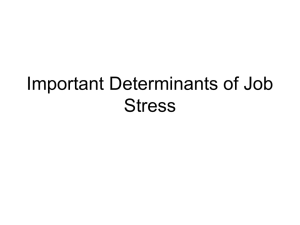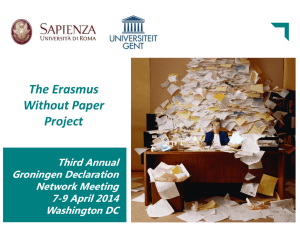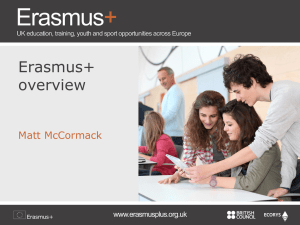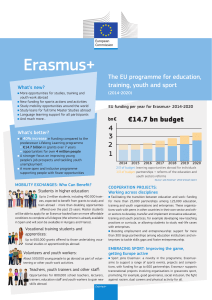Internationalising Language Teaching and Learning with the help of
advertisement
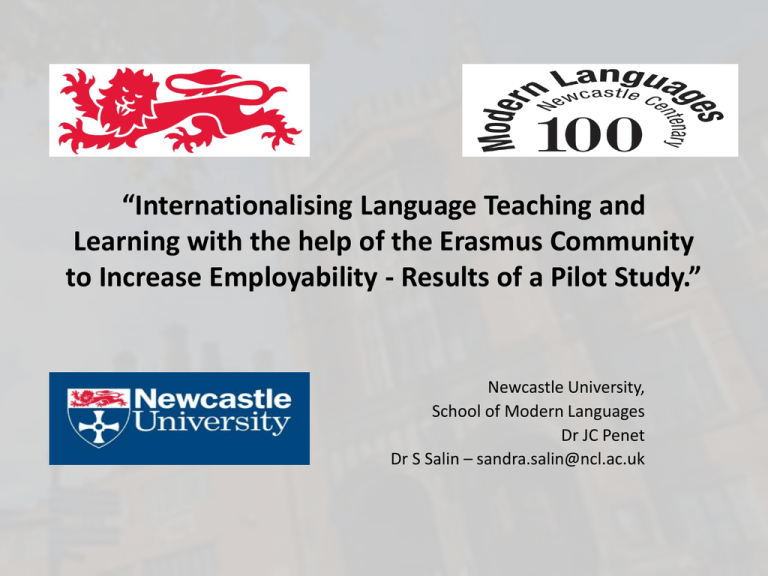
“Internationalising Language Teaching and Learning with the help of the Erasmus Community to Increase Employability - Results of a Pilot Study.” Newcastle University, School of Modern Languages Dr JC Penet Dr S Salin – sandra.salin@ncl.ac.uk Rationale Context: - NU students demands; - Erasmus students feedback; - 2012 horizon - - Key concepts in pilot project: - Peer learning; - Reflective learning. Aims and objectives: Solution to increase contact hours; Better integrate Erasmus students; Boost Erasmus students employability; Develop language students’ awareness Methodology - Semester 1 : Training Week Content 3 Introductory meeting – allocation of mentors / mentees 4 Introduction to the British Higher Education System 5 Introduction to the SML + First and second year language modules 6 Introduction to classroom resources / Black Board / Language Labs 7 Class observation + Feedback 8 Class observation + Feedback 9 Micro teaching experience on first and second year modules + Feedback from tutor 10 Micro teaching experience on first and second year modules + Feedback from tutor Semester 2 Teaching Practice and evaluation Lesson Plan Feedback Feedback Lesson Questionnaires Certificate ‘Erasmus Teachers’ (ET) - Involvement Number of participants Percentage Beginning of Project 16 100% Class Observation – Week 7 S.1 8 50% Class Observation – Week 7 S.1 8 100% [50%] Semester 2 Teaching 7 87% [44% ] Feedback 1 4 57% [25%] Critical Phase ET– Motivations* *Quotes from Question 1 of ‘Erasmus Teachers Feedback Questionnaire 1’ “It was interesting to do something different, to learn new things, to meet different people.” Try New “I wanted to know if [my own experience] can be profitable to someone.” Why take part? Share “… so I could know if [becoming a teacher] was really something I wanted to do.” CV “It was also an experience that I could put down on a CV.” ET – Expectations* *Results from Question2of ‘Erasmus Teachers Feedback Questionnaire 1’ Being able to organise class activities Being able to help students Learn new skills Being more comfortable with an audience Develop my ability to communicate ET- Feedback on S.1 sessions* *Results from Question 4 of ‘Erasmus Teachers Feedback Questionnaire 1’ Was it useful? Most particularly… Introduction to the English HE system Yes Fee system explained Introduction to the School and its language modules Yes To position yourself within project Introduction to classroom resources Not really Too quick and not “handson” enough… Class observation and feedback Yes To have a better idea of kind of teaching expected of you… BUT – “observation form confusing” Micro-teaching experience Very useful - “supportive teacher”; - “… helped me feel more comfortable with 2nd semester teaching” ET - Feedback on Observation Sessions • Observation sessions – at the heart of this pilot project! • Seen as the starting point of reflective learning (RL): - RL ‘for action’: S.1 obs. sessions; - RL ‘in action’: S.2 teaching; - RL ‘on action’: job interview. RL ‘on action’ RL ‘for action’ RL ‘in action’ From: P. Kahn and L. Walsh (eds.) Developing your Teaching (London: Routledge, 2006), p.48 – Based on Schön, Educating the Reflective Practitioner, 1983. ET- Feedback on Observation Sessions* *Quotes from Question 5 of ‘Erasmus Teachers Feedback Questionnaire 1’ What did they learn from those sessions? - To observe differences… > “I learned that the BrItIsh system Is very dIfferent” > “A different approach to language teaching…” - … And how to act upon what they observed: > “… I tried to apply it in the second semester.” > “I learned how to act in class by observing and I then took into account what the teacher told me to have a good start when teaching on my own.” = RL FOR and IN action ET: ‘on action’ Reflective Learning* *Results from Questions 6, 7 and 8 of ‘Erasmus Teachers Feedback Questionnaire 1’ Self-evaluation of teaching experience: - Positive elements: “Fun, challenging, positive, managing, communicating, connecting, investing ourselves, sharing and helping”… - What they thought could be improved? 1) Teaching-wise: Class preparation (preparing class plans), managing time, self-confidence, create more interesting activities, body language 2) Project-wise: Too big a gap between micro-teaching and S.2 teaching, give more guidelines as to the kind of activities that make students participate, give us photocopy credits… - ET’s overall mark given to project: 7.75/10 ET – Benefits of project* *Results from Question 9 of ‘Erasmus Teachers Feedback Questionnaire 1’ 75% do “Yes because it’s more real and I see that there are multiple factors to take into account.” “Do you think your perception of what makes a good teacher has changed…?” “I have, however, realised that teaching requires much more preparation and that it is much more difficult than I had anticipated.” 25% don’t but… NU Students’ questionnaire analysis* *Results from ‘First-Year and second year Students Feedback Questionnaires 1’ Level B Level C 78 questionnaires received 62% did not attend ET-led sessions 38% did attend ETled sessions 84 questionnaires received 67.8% did not attend 32.1% did attend Reasons for not attending* *Results to question 2 from ‘First-Year and second year Students Feedback Questionnaire’ Time Clashes Clashes Time Organisation Priority Info Priority Room change Commitment Organisation 25 20 19 15 10 7 5 1 0 Overall satisfaction* *Results to question 10 from First-Year and second year Students Feedback Questionnaire • Level B • Level C Satisfactory Satisfactory Good Good Very good Very good Excellent Excellent What was liked the most* *Results to question 4 of ‘First-Year and second year Students Feedback Questionnaire’ Level B 20 18 16 14 12 10 8 6 4 2 0 Level C Extra practice Small groups Friendly Casual 16 14 12 10 8 6 Native speaker More variety Friendly/re laxed Extra speaking Same age 4 Youth culture 2 Youth vocab 0 The students’ learning experience *From First-Year and Second Year Students Feedback Questionnaire 1’ Helped improve speaking. Helped consolidate vocab. Helped improve confidence. Made the learning experience more enjoyable More information relevant to my age Better cultural understanding Benefits of the Erasmus teacher* *Quotes from question 6 of ‘First and second year Students Feedback Questionnaire 1’ ‘Great practice as they are young native speakers.’ ‘It’s good because they have been in your position too.’ Preparation for the year abroad …* * From question 7 of ‘First-Year and Second year Students Feedback Questionnaires’ ‘It definitely helped my confidence for the year abroad!’ Great opportunity to learn from somebody who has overcome the same problems What could be improved* *Results from question 5 from ‘First-Year ans second year Students Feedback Questionnaires’ 18 16 14 12 10 8 6 4 2 0 More speaking Organisation More sessions 1 To consider • 2012-13 - a credit bearing Erasmus module • University induction session • Assessment - Reflective learning (Essay + portfolio) / Employability (job interview) • Compulsory to NU students? • How to make students attend ? • Better integration of the Erasmus community • Promotion of languages in schools • Promotion of the year Abroad experience and the Erasmus programme.
